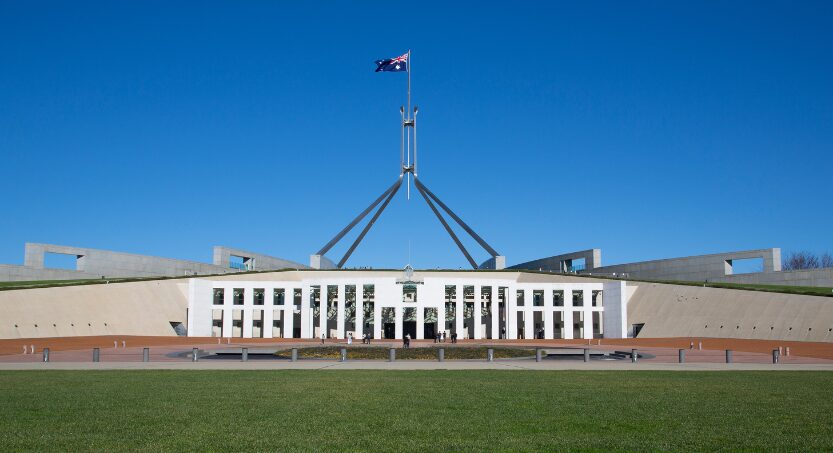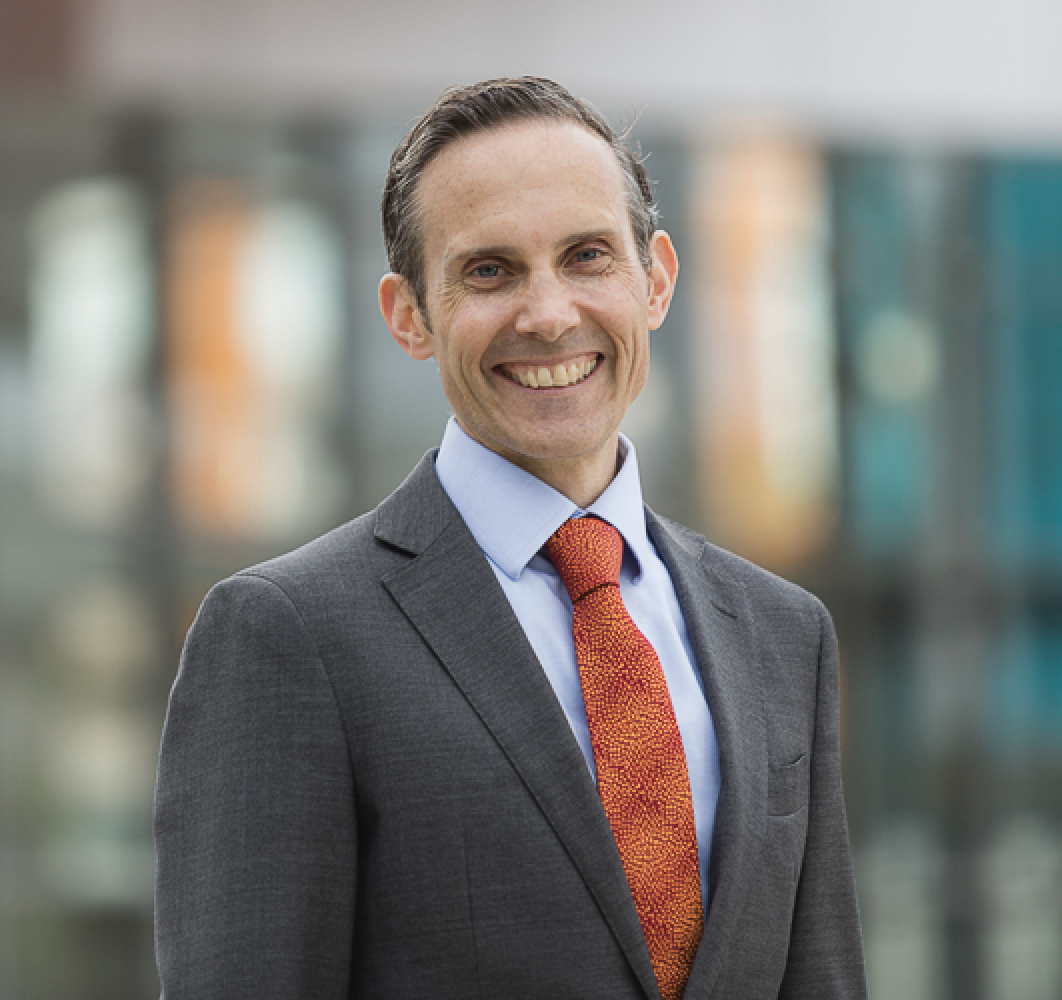Canberra charity roundtable looks to boost productivity, streamline reporting and boost innovation

This article first appeared in the Community Advocate and is kindly republished here with permission.
A strong commitment to boosting productivity in the charity and not-for-profit sector, as well as improving government evaluation and reporting demands, dominated an industry roundtable in Canberra Tuesday.
The roundtable was organised to allow Charities Minister Andrew Leigh and Social Services Minister Tanya Plibersek to spend time with more than 25 sector leaders, behind closed doors and with all ideas on the table.
“It was a really impressive collection of sector leaders all sitting around the table, all discussing issues of importance to the future of the sector,” Community Council for Australia CEO David Crosbie said afterwards. “I think there were a lot of good ideas put forward about how we could strengthen the sector.”
For Krystian Seibert, executive director, policy & sector development, for Philanthropy Australia, and former associate commissioner at the Productivity Commission, there was comfort in the government’s and sector’s joint commitment to an existing action plan.
“I think that one of the key takeouts for me was the shared commitment about the importance of the NFP Sector Development Blueprint as an action plan for reform in this space,” he told the Advocate. “Both Assistant Minister Leigh and Minister Plibersek were clear about the value they place on the Blueprint as a guiding document for reform, which was very pleasing. Before the roundtable there was some concern that perhaps this process will mean that the Blueprint is now ‘left behind’, but fortunately, the emphasis was on ensuring the opposite.”
Priorities for the Treasurer’s forthcoming roundtable
At the roundtable introduction, it was made clear that the sector would only be able to push for between one and three reforms at the upcoming Treasurer’s economic roundtable. Defining these reforms was a goal, but Charities Minister Andrew Leigh said the ambition of yesterday’s roundtable was to have “a sector-focused discussion about how to boost productivity in the charity and not-for-profit sector.”
His focus was on defining what works and encouraging innovation, including effective use of artificial intelligence.

“I think there was a strong commitment to doing better on evaluation,” the Minister told the Advocate. “Having a framework or having settings that allow you to say that programs don’t work. Because if you’ve got the ability to say that a program doesn’t work, then that’s an ability to move that funding towards more effective programs. So there was an enthusiasm in the room about government leading by evaluating government programs and by identifying good methodologies for figuring out what works.”
There was no shortage of talent or strong opinions around the table.
The who’s who of Australia’s charity and philanthropic sectors are in the nation’s capital this week for a variety of events, with roundtable delegates invited to four sessions, with Leigh and Plibersek splitting hosting duties.
Four streams of debate
The first session concentrated on “expanding the use of outcome measurement, cost-effectiveness tools, and rigorous evaluation – including randomised trials.”
Leigh said that this discussion had explored the potential for testing charity programs of work in a similar way to how potential new pharmaceutical drugs are trialled. “A lot of the things that come out of pharmaceutical labs seem like they’re going to be good, but when they’re put to the test, don’t deliver,” he said. “We need systems for charity-funded programs where we’re able to really test what impact they’re having on the ground and compare the programs against a credible counterfactual.”
The second session centred on potential reforms to funding arrangements, with the aim of improving long-term outcomes, while simplifying compliance and promoting innovation.
David Crosbie said this was a clear area of interest for Minister Plibersek. “The Department of Social Services spends billions, literally billions of dollars in our sector,” he said. “If that could be better administered and the relationship and trust between government and charities could be built and improved, I think we would achieve productivity gains. But not only that, the community would benefit.”
Krystian Seibert said, “The term ‘productivity’ can mean varied things to various people – but I think it needs to be looked at holistically. It’s not just doing more with less, but to me it means doing things differently to achieve better outcomes – what many call ‘social innovation’. There’s so much social innovation occurring within the not-for-profit sector, often supported by philanthropy, and we can absolutely create better conditions for that sort of social innovation to thrive. That will lead to better outcomes in the community, but also, importantly, influence government policy and program design.”
Leigh said he had been impressed by the debate during the third session, which considered technological advancement, AI and other practical innovations to reduce the administrative load and improve outcomes.
“There was a focus on both the risks that cybersecurity challenges pose, but also the opportunities of artificial intelligence,” the Minister said. “And there was a strong consensus that it’s incumbent on charities to be using artificial intelligence in order to be able to lead the community conversation around ethical artificial intelligence.”
Asked whether philanthropy or the government should lead this work, Leigh said charity was, so far. “There is a keen appetite for some greater support for growth and innovation within the charity sector, and I guess that covers a number of different areas,” he said, citing work in mental health support by Benefolk and legal frameworks innovation by Justice Connect as two examples of where the sector is pushing forward.
Streamlining reporting and building trust
The final session focused on streamlining reporting of impact and spending, in terms of content, formatting and processes, to make it more meaningful and efficient.
Crosbie said building trust between government and the sector was essential, so charities could speak openly about concerns without fear of losing funding, and so government could be comfortable with how funds were being spent and accounted for.
“Personally, I think it’s up to the sector to talk about what it needs to be more productive and then it’s up to the government to look at its role as a prime funder of the sector and one that sets the regulations and the legislation around the sector,” he reflected, after the session. “The government clearly has a very critical role in its own processes, in the way it funds the sector, in the way it relates to the sector, in the way it regulates the sector and the laws relating to the sector.
“There were suggestions put forward about how some of those things could be done much better,” he said. “There were presentations from experts on areas like better contracting and better measuring outcomes, and the kinds of initiatives that, if they were adopted broadly across government, would certainly translate into improved productivity and benefit, not only for charities and community organisations, but the communities they serve.”
Wider debates
The roundtable occurred on the same day that the Stronger Charities Alliance published an open letter to the Albanese government, signed by 103 members and supporters of the alliance (including many roundtable participants), demanding reforms that would allow charities to “speak up on critical societal challenges without fear of political interference.”
It also came at a time of much discussion about how charities should “self-review” their right to tax exemptions, and questions about how organisations can achieve DGR status.
Crosbie has led the charge on the self-review issue, with his efforts including an opinion piece published in last week’s Advocate, and he confirmed it had come up during the roundtable discussions. “It was raised as one of those areas that would help particularly smaller charities who currently can’t afford to do the process of becoming DGR or can’t access DGR for a whole range of reasons,” he said. “And I think it was noted, but it’s like a range of other suggestions: it’ll be interesting to see how much the government picks up and whether the government is willing to actually implement some of what was suggested.”
The tangible benefits of the roundtable will take time to assess.
“I’m not sure where it goes from here,” Crosbie said. “We know we’ve got one person at the [Treasurer’s] main productivity roundtable discussion in Cassandra Goldie, but I suppose that the question is how many of the ideas and the suggestions about how we could do things can be translated into change that will make a difference for charities and not-for-profits across the country?
“I mean, if we could implement half the ideas put forward, I think we’d have a much more productive sector and a much more productive government, but I know that the challenge will be for government to identify two or three clear things that can be done that won’t cost a lot, that will improve productivity and drive positive reform for the sector. We’re not sure where that’s up to, other than saying I think we had a really good series of discussions.”